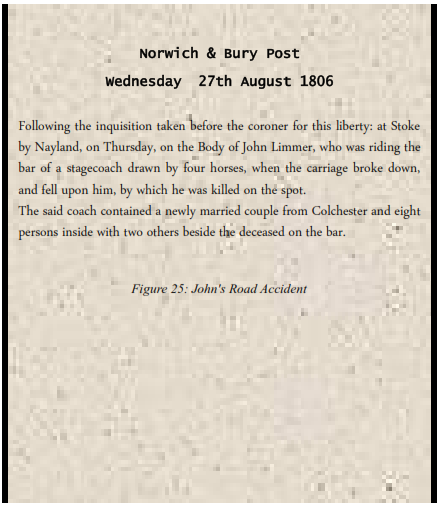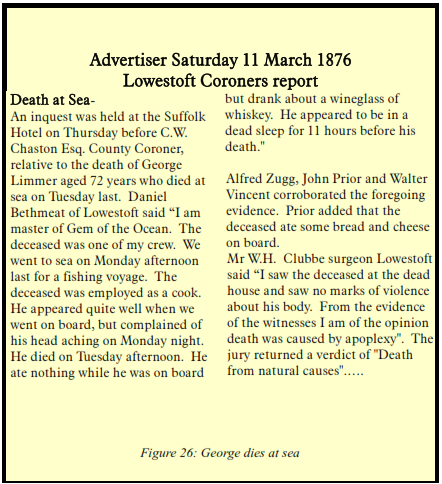Chapter 23 WIVENHOE
 hree miles from Colchester lies the parish of Wivenhoe. in the 16th century it was an independent village under a Lord of the Manor. The village spanned both sides of the river, the southern side being a little more select while the northern side gained a reputation for darker deeds like smuggling and drunken rowdiness.
hree miles from Colchester lies the parish of Wivenhoe. in the 16th century it was an independent village under a Lord of the Manor. The village spanned both sides of the river, the southern side being a little more select while the northern side gained a reputation for darker deeds like smuggling and drunken rowdiness.
Most of the Fifteen inns played 'unlawful' games of alleys, cards, and slide-thrift. Many of these inns would lighten the pockets of overnight guests, who had brought cartloads of goods to be loaded onto ships. Bowling, cricket matches, dances, an annual toy fair and sailing matches were all part of the village life. These encouraged the crowds for the pickpocket to go about their business.
At low tide horse-drawn traffic could cross the river by an eleven foot wide causeway. In the seventeenth century the causeway was frequently 'in need of repair ' and often obstructed, unsurprising really, because the lord of Wivenhoe manor held the rights and interests to the toll ferry. He was also entitled to levies on ships for anchorage in the port, driftwood, and 'royal fishes' ( pisces regales).
Wivenhoe port was an important part of Colchester because water transport connected Wivenhoe with London. By Edward's (1737.46) time, two Colchester 'packet boats' went weekly from Wivenhoe to London with cloth and returned with wool for the Colchester cloth industry.
In 1723 the rector's report shows a population of 110 families. In 1524 a total of 94 people were assessed for subsidy, which tells us that this was a notoriously poor area. They counted families because, of course, most men were away at sea.
Smallpox epidemics in 1726, 1762, and 1776, left a number of cheap, empty houses, into which redundant people like Edward (1737.46) moved. Thus Wivenhoe, once a busy seafaring port, declined further as redundant clothiers from the factories tried to scratch a living from cottage industry that had long since ceased to be profitable.
We pick up our story again with Edward's family in Wivenhoe. We are still in the age of candles for lighting326, one coal fire per working man's house -(if you are lucky), fourteen-hour working days with one meal a day. Steam is beginning to drive machinery in the factories of Colchester and there might be an occasional spectacle of a steam ship passing up or down river of Wivenhoe. The Sunday school society, founded to educate poor children in 1785, passed by Wivenhoe. It would not see the benefits of this for another few years yet because, (like so many of these charities), they worked with the 'relatively poor' rather than the 'dire poor' . A new chimney sweep law of 1788, forbade children under eight from going up chimneys, it was not enforced and few masters took notice of it.
If you belong to a “better class”, you might join one of the new golf clubs,327 or you might like to read the first Sunday news paper328 with an 'S' that looks like an ' S' not an  . 329
. 329
Times were tough for Edward's branch of the Limmer tree, but hope and tenacity carried them through and things got better, even though it took a couple of generations.






 hree miles from Colchester lies the parish of Wivenhoe. in the 16th century it was an independent village under a Lord of the Manor. The village spanned both sides of the river, the southern side being a little more select while the northern side gained a reputation for darker deeds like smuggling and drunken rowdiness.
hree miles from Colchester lies the parish of Wivenhoe. in the 16th century it was an independent village under a Lord of the Manor. The village spanned both sides of the river, the southern side being a little more select while the northern side gained a reputation for darker deeds like smuggling and drunken rowdiness. .
. 
